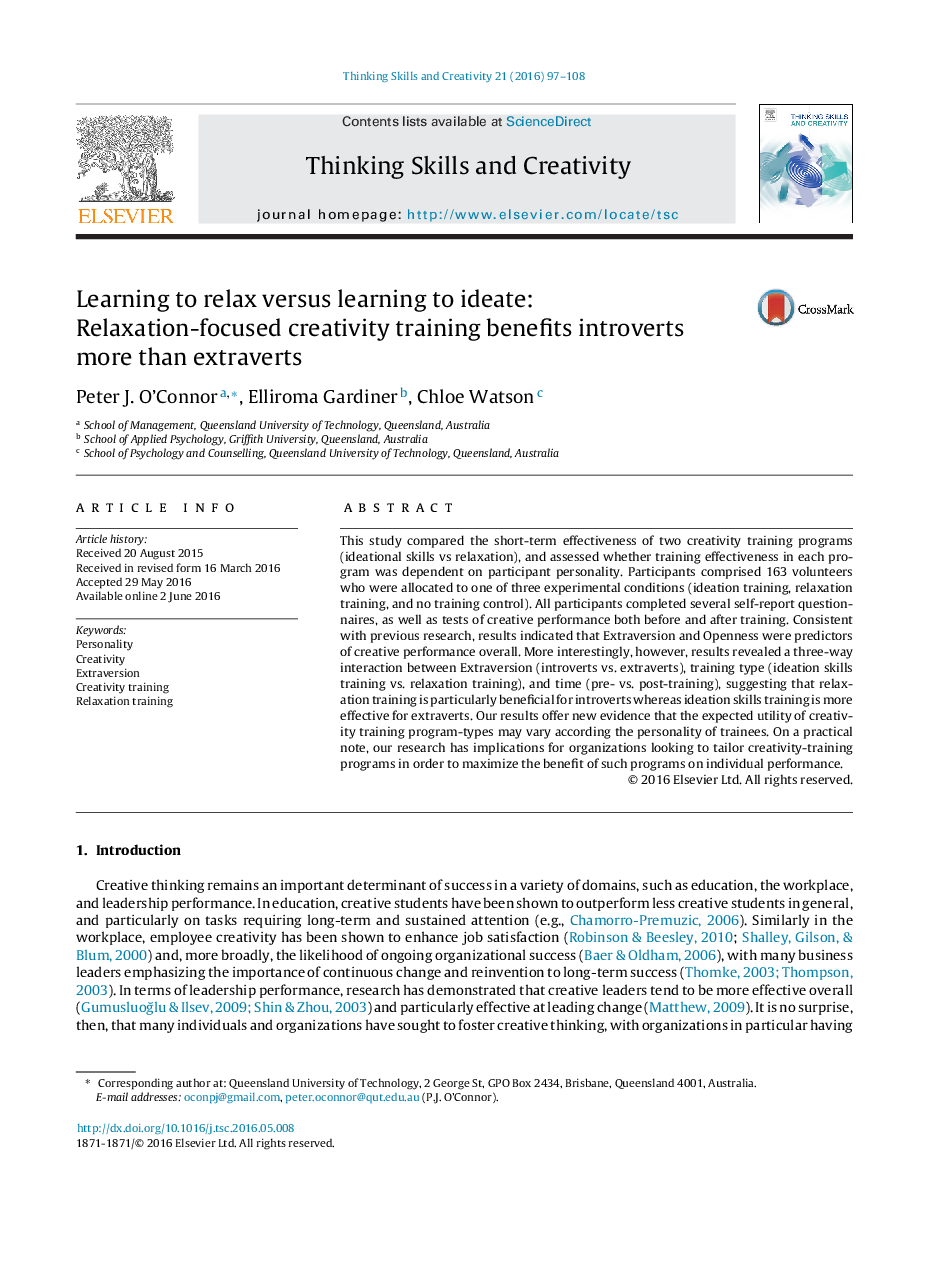| کد مقاله | کد نشریه | سال انتشار | مقاله انگلیسی | نسخه تمام متن |
|---|---|---|---|---|
| 375514 | 622800 | 2016 | 12 صفحه PDF | دانلود رایگان |
• Brief training in ideational skills resulted in enhanced creative performance.
• Brief training in relaxation resulted in enhanced creative performance.
• Success of training depended on the specific personality traits of trainees.
• Ideation skills training was particularly beneficial for extraverts.
• Relaxation training was particularly beneficial for introverts.
This study compared the short-term effectiveness of two creativity training programs (ideational skills vs relaxation), and assessed whether training effectiveness in each program was dependent on participant personality. Participants comprised 163 volunteers who were allocated to one of three experimental conditions (ideation training, relaxation training, and no training control). All participants completed several self-report questionnaires, as well as tests of creative performance both before and after training. Consistent with previous research, results indicated that Extraversion and Openness were predictors of creative performance overall. More interestingly, however, results revealed a three-way interaction between Extraversion (introverts vs. extraverts), training type (ideation skills training vs. relaxation training), and time (pre- vs. post-training), suggesting that relaxation training is particularly beneficial for introverts whereas ideation skills training is more effective for extraverts. Our results offer new evidence that the expected utility of creativity training program-types may vary according the personality of trainees. On a practical note, our research has implications for organizations looking to tailor creativity-training programs in order to maximize the benefit of such programs on individual performance.
Journal: Thinking Skills and Creativity - Volume 21, September 2016, Pages 97–108
